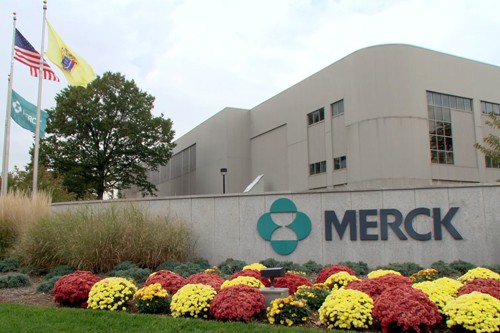
Merck & Co – known as MSD outside the US and Canada – has highlighted new data for its blockbuster immunotherapy Keytruda used before and after surgery in high-risk, early-stage triple negative breast cancer (TNBC).
In March 2021, the US Food and Drug Administration (FDA) issued Merck & Co a complete response letter (CRL) rejecting a supplemental biologics licence application (sBLA) for Keytruda (pembrolizumab) in TNBC, based on the pCR data and early interim EFS findings.
Now, Merck has additional data to make its case for the use of Keytruda plus chemotherapy before surgery and continued as a single agent after surgery for these TNBC patients.
In the phase 3 KEYNOTE-522 study, the Keytruda regimen reduced the risk of event-free survival (EFS) by 37% after a median follow-up of 39 months when compared to the chemotherapy-placebo regimen.
In this trial, EFS was defined as the time from randomisation to the first occurrence of either disease progression that precluded definitive surgery, a local or distant recurrence or death from any cause.
Merck previously announced that the KEYNOTE-522 trial met the dual-primary endpoint of pathological complete response (pCR) for the treatment of high-risk early-stage TNBC patients at the first interim analysis.
The Keytruda regimen also led to a 28% reduction in the risk of death versus the chemotherapy-placebo regimen at the fourth interim analysis – although this data did not cross the boundary for statistical significance.
TNBC is an aggressive and hard-to-treat subtype of breast cancer, representing around 15% of all breast cancer worldwide, approximately 300,000 cases every year. Patients who are PD-L1 positive represent a subgroup of about 40% of this total.
“These highly anticipated event-free survival results in this TNBC population build upon earlier findings from the KEYNOTE-522 trial and further support the potential use of Keytruda in these patients,” said Vicki Goodman, vice president, clinical research, Merck Research Laboratories.
“KEYNOTE-522 is the first large randomised phase 3 study to report a statistically significant and clinically meaningful EFS result among patients with stage II and stage III TNBC. We have submitted [this] data to the FDA and are working closely with the agency on its review of our application,” she added
The FDA’s oncologic drugs advisory committee (ODAC) previously voted 10-0 that a regulatory decision for Keytruda in early-stage, high-risk TNBC patients should be delayed until further data from KEYNOTE-522 became available.




